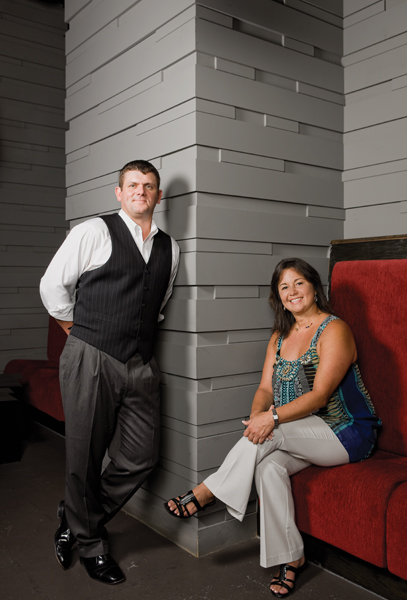Necessity is the mother of invention, the saying goes, and in the case of AssistHers, it was necessity plus compassion that formed the organization.
The organization, which helps Houston-area lesbians coping with life-threatening illnesses to live as normally as possible, began with just one client who wasn’t really a client. She was a friend. And her friends had seen her and her partner—AssistHers doesn’t share names of current or past clients—struggle when she developed brain cancer.
“Her partner and she were by themselves,” said Marisol Lara, VP at large. “It was a huge problem: One of them had to go to work, and one couldn’t. All of the issues that arose from that one woman started this organization. Their friends became her caretakers, because they couldn’t rely on anyone else. Their families weren’t part of that relationship and didn’t want to be part of it.
“So when the organization was formed, it was more friends getting together to help a friend. Then it expanded. There was this genius idea of somebody saying ‘we have someone else we may be able to help— can we do it?,’ The original client did eventually pass away, and it branched out from there.”
Clients began to come out of the woodwork. Someone knew a woman who was ill and had only her sister, at her wit’s end, taking care of her. Someone else was living alone and dealing with a newly diagnosed disease.
“From that point on, we started figuring out as a community that there were women out there, lesbians, who were very alone,” Lara said, speaking with an even but forceful tone.
For Lara and for all the volunteers who make AssistHers run, it’s a labor of love. Today the organization boasts more than 150 volunteers— including straight allies—and a board of 13; it doesn’t have any paid staff positions. Currently, it helps 30 clients who range in age from the 40s and up and are living with diseases like cancer and multiple sclerosis. It raises about $20,000 each year through fundraisers and pursues grants for additional funding.
AssistHers is not a medical organization, so its volunteers can’t advise clients about medications or help them take medicine. But it does help out with tasks that seem mundane until you can no longer do them—laundry, dog walking, and doing the dishes. The organization has a “tool team,” which helps with minor repairs, and has installed wheelchair ramps for several clients who didn’t have an easy way to get in or out of their homes. It also provides taxi vouchers for clients who can’t drive to and from medical appointments and food vouchers for those who struggle economically.
It also provides the nontangible, but equally essential, moments of conversation and friendship that so many of their clients live without each day.
“We took on one client when she was 32,” Lara said. “She’s now 45 and has highly progressive MS. She was a vibrant softball player, a very vibrant young woman. We went from seeing a woman who wasn’t walking very well but could still be independent, and within a year and a half she was in a wheelchair…she still loves to see volunteers and speak with them. It’s hard for her to speak, but she does understand. She doesn’t have very many friends, so one of the things we do, we sit and chat. It makes [clients] feel like someone cares.”
The organization’s clients face unique challenges when it comes to living with debilitating disease. In Texas there are limitations to the legal rights an LGBT partner has, and socially, many women have been through enough trauma to make them wary of the medical system.
“I think some of our clients, because they’re now older, are afraid to go get medical help,” Lara said. “They still feel like they’re not able to be open with their own physicians or to take their partners to a hospital when they have to be seen by a physician, because they are afraid to be told ‘you can’t be here.’”
But there are bright spots. Houston has a number of organizations that AssistHers is very involved with, like the Lesbian Health Initiative of Houston, which strives to eliminate barriers to health care for LGBT women. Lara sees younger lesbians becoming more proactive about preventative health care, which will hopefully mean less disease in their futures.




































